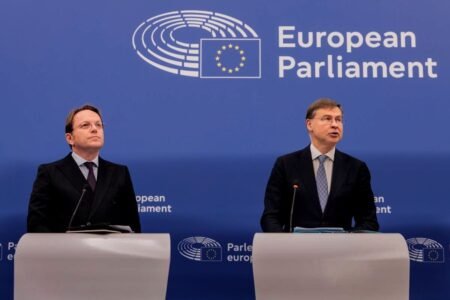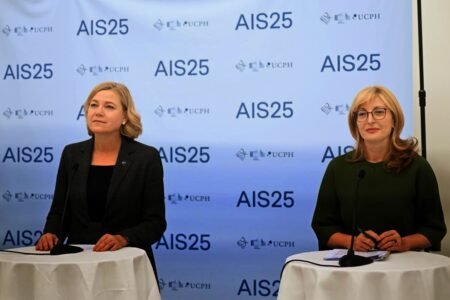In the coordinated plan on Artificial Intelligence (AI) presented on 7 December, EU Member States and the Commission defined a series of joint actions to increase investment, make more data available, foster talent, and ensure trust in AI.
Advertisement
Why is AI important for Europe? Why should the Member States and Commission act together?
As electricity did in the past, AI is transforming our world. AI is at our fingertips, when we translate texts online or use a mobile app to find the best way to go to our next destination. At home, a smart thermostat can reduce energy bills by up to 25% by analysing the habits of the people who live in the house and adjusting the temperature accordingly. In healthcare, algorithms can help dermatologists make better diagnoses: by detecting, for example, 95% of skin cancers by learning from large sets of medical images. By making sense of vast amounts of data to offer efficient solutions, AI improves products, processes and business models in all economic sectors. It can help companies identify which machines will need maintenance before they break down. AI also transforms public services.
The changes brought by AI also raise concerns. Workers fear they will lose their job because of automation, consumers wonder who will be responsible if a wrong decision is taken by an AI-based system, small companies do not know how to apply AI to their business, AI start-ups do not find the resources and talent they need in Europe, and international competition is fiercer than ever, with massive investments being made in the US and China.
Addressing these challenges and making the most of the opportunities offered by AI require joint action by European countries and the Commission.
How does this coordinated plan fit with strategies already launched by European countries?
The coordinated plan aims at ensuring complementarity and synergies between national and EU level actions to maximise impact and spread the benefits of AI across Europe. It also provides a strategic framework for national AI strategies. EU countries are encouraged to develop their national AI strategies by mid-2019, building on the work done at European level. These national strategies are expected to outline investment levels and implementation measures. As of today, five Member States have already adopted a national AI strategy with a dedicated budget: France, Finland, Sweden, the United Kingdom and Germany. Some countries, Denmark, Luxembourg, the Netherlands, Ireland, and Norway are including AI-related actions in a broader digitisation policy. Austria, Belgium, the Czech Republic, Denmark, Estonia, Germany, Italy, Latvia, Poland, Portugal, Slovenia, Slovakia and Spain are in the process of developing their national policies.
Is this plan binding? Are there any new laws being developed?
No. Further developments in AI require a regulatory framework that is flexible enough to promote innovation while ensuring high levels of protection and safety. The Commission is in the process of assessing whether the national and EU safety and liability frameworks are fit for purpose in light of these new challenges or whether any gaps should be addressed. This will lead to a report in mid-2019 as well as guidance on the interpretation of the Product Liability Directive in the light of technological developments, to ensure legal clarity for consumers and producers in the event of defective products.
Why are Norway and Switzerland part of the coordinated plan?
The EU has a longstanding relationship with EFTA member states such as Norway and Switzerland through research programmes. In both countries the development and use of AI has been a priority, and they have shown a great interest in participating in the coordinated plan. Norway has already signed the Declaration of Cooperation while Switzerland is in the process of doing so. Both are members of the Digitising European Industry Group.
What is AI “made in Europe”?
Europe has a unique approach to AI. While actions are geared towards developing technology that is competitive and makes the most of the opportunities offered by AI, this technology should also be ethical and secure. For this reason, the Commission is proposing an approach that places people at the centre of the development of AI (human-centric AI) and encourages the use of this powerful technology to help solve the world’s biggest challenges such as climate change, safe transportation and cybersecurity. At the same time, the development of this type of AI builds on Europe’s scientific and industrial strengths.
Are any new public-private partnerships envisaged?
Yes, the Commission will bring companies and research organisations together to develop a common strategic research agenda on AI, defining priorities in line with the needs of the market and encouraging exchanges between sectors and across borders. This will pave the way for a new research and innovation partnership on AI, fostering collaboration between academia and industry in Europe. As part of this contractual partnership, the private sector is expected to commit to specific, high investments in AI. This partnership will build on existing partnerships in robotics and big data, representing EUR 4.4 billion of investments, of which the majority (EUR 3.2 billion) comes from industry. This new partnership will help reinforce competitiveness across the whole AI value chain.
How will AI “made in Europe” be ethically sound?
The Commission tasked a High-Level Expert Group on artificial intelligence to draft AI ethics guidelines, as announced in April’s strategy. A first draft of these guidelines will be ready by the end of the year and open for wide consultation through the European AI Alliance. A final version is expected for March 2019. One key principle will be “ethics by design”, by which ethical principles are embedded in AI products and services right at the beginning of the design process. The Commission will collaborate with all stakeholders to work towards the concrete implementation of the guidelines and their principles. Moreover, the guidelines will be anchored in the European principles of the Charter of Fundamental Rights. The ambition is then to bring Europe’s ethical approach to the global stage. The Commission is opening up cooperation to all non-EU countries that are willing to share the same values.
How will the Common European Data Space be created?
AI needs vast amounts of data to be developed. Machine learning, a type of AI, works by identifying patterns in available data and then applying the knowledge to new data. The larger a data set, the better AI can learn and discover previously hidden connections in the data.
The entry into application of the free flow of non-personal data Regulation in the course of 2019 will help unlock data, in particular machine-generated data, and greatly ease the cross-border operation of businesses in the EU. Agreement on the review of the Public Sector Information Directive will also increase the amount of data available for innovation.
The creation of common European data spaces in a number of areas such as manufacturing and energy will constitute a major asset for European innovators and businesses. These common European data spaces will aggregate data, both for the public sector and for business-to-business needs, across Europe and make it available to train AI on a scale that will enable the development of new products and services. The rapid development and adoption of European rules such as interoperability requirements and standards is essential. The EU must also provide support to ensure that these data sets can be seamless accessed, exchanged and reused. The identification of high-value data sets by Member States will help make them more openly reusable. The Commission will also contribute with large quantities of earth observation data and information from its flagship Copernicus programme.
AI applications in healthcare are particularly promising. In 2020 the Commission will support via Horizon 2020 in coordination with Member States the development of a common database of health images (anonymised, and based on patients voluntarily donating their data). This image database will initially focus on the most common forms of cancer, using AI to improve diagnosis and treatment.
What about AI in the public sector?
AI tools are crucial to the future work of public administrations. AI can improve the delivery of public services by making it easier and faster for citizens to use the services provided by public administrations. Member States and the Commission will engage in peer learning and discuss areas for the joint procurement of AI solutions, including cybersecurity, as well as specific challenges for the public sector.
What will the equity instrument for AI look like and how will it work?
Start-ups in their early stages and companies in the scale-up phase need sufficient funding both early on and when they grow. To support them, the Commission plans to make an equity investment instrument for AI and blockchain available. In 2020, EUR 45 million will be provided from Horizon 2020 in order to reach a total of EUR 100 million for investors across Europe, thanks to the leveraging of the European Fund for Strategic Investments (EFSI) and the European Investment Fund (EIF).
The instrument could focus on financing a portfolio of innovative AI/blockchain companies, developing a dynamic EU-wide investors community focusing on AI, multiplying investments at the national level by involving national promotional banks (NPBs), incentivising private sector investments, and making Europe more attractive for start-ups to stay and grow here.
Why are you launching an enhanced European Innovation Council pilot?
The Commission has proposed to establish the European Innovation Council (EIC) as one of the key novelties of the new EU programme for Research and Innovation, Horizon Europe (2021-2027). The EIC will be a one-stop shop to bring the most promising ideas from lab to real world application and support the most innovative start-ups and companies in scaling up their ideas.
The EIC concept is already being tested as a pilot scheme in the last three years of the current research and innovation programme, Horizon 2020. It offers EUR 2.7 billion in funding for 2018-2020, opportunities for networking, mentoring and coaching, and strategic advice to upgrade the innovation ecosystem in Europe. This scheme is likely to be particularly helpful for AI development, as AI technology is expected to be part of many projects, for applications in areas such as health, agriculture and manufacturing.
Following up on the European Council conclusions of 28 June 2018, the Commission is working to launch an enhanced EIC pilot in 2019. This enhanced pilot will build on the proposed structure of the EIC under the Horizon Europe proposal in order to fast track disruptive and market-creating innovation. In particular, the new pilot will support cutting-edge, high-reward research and innovation projects that aim to demonstrate a new technological paradigm in fields such as human-centric AI.
What is planned to improve digital skills and analyse the impact of AI on the labour market?
Adapting learning and skilling programmes to prepare future generations of Europeans for AI is essential. The Commission will fund scholarships for students to participate in a dedicated Master’s programme and adult education programmes on AI, with a particular focus on higher education and work experience. The Commission has also established the Expert Group on the Digitisation and the Future of Work, which in the spring of 2019 will start to address strategies to deal with employment disruption. Beyond 2020 the Commission has proposed to provide a total of EUR 700 million to support advanced skills (including AI, supercomputing and cybersecurity) as part of the Digital Europe Programme.
Source: European Commission







